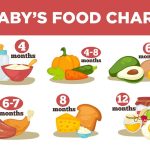For any parent and caregiver, children’s dietary needs are among one’s highest priorities. However, sometimes even if we try our best there are moments that we experience nutritional deficiencies. Today, we’ll explore two critical aspects of childhood nutrition: help in the absorption of nutrients such as protein and minerals. It is now about time we look at these deficiencies in detail and find out how to treat them in the best manner.
Table of Content:
- Mineral Deficiency in Children
- Protein Deficiency in Children
- Protein Deficiency Diseases in Child
- Mineral Deficiency Diseases
Mineral Deficiency in Children:
As much as it is hard to imagine, mineral deficiency in children happens more than you can imagine. The essential nutrients described below are important for performing a variety of functions for your body including the formation of bones. Did you know? The leading nutritional deficiencies in children include the following, iron, calcium and zinc.
Here are some signs to watch out for:
- Irritability and kvetching, fatigue and weakness which is often associated with anaemia caused by the lack of enough iron.
- Brittle nails or hair loss
- Poor appetite
- Delayed growth or development
To combat mineral deficiencies, consider these strategies:
- Ensure your child takes foods from different groups that make up a balanced diet.
- Choose fortified foods when possible
- Consider a multivitamin supplement (consult with your pediatrician first)
Protein Deficiency in Children:
Malnutrition and protein energy deficiency particularly in children can have severe consequences concerning their physical as well as mental growth. Proteins are the building blocks of life, essential for:
- Muscle and tissue growth
- Production of enzymes and hormones
- Supporting the immune system
Signs of protein deficiency may include:
- Slow growth rate
- Weakened immune system (frequent illnesses)
- Poor muscle tone
- Edema (swelling) in extremities
There are several ways you can make sure that your child is taking enough protein in his or her daily diet:
- The low calorie proteins which should be taken include lean meats, fish, eggs and dairy products.
- In case one wants to take vegetarian or vegan diets, then strong emphasis should be placed on plant proteins such as beans, lentils, and tofu.
- Include protein containing snacks such as Greek yogurt or nut butter ( if there is no nut intolerance)
Just remind that the daily allowance of protein depends on one’s age and level of physical activity. Please see your pediatrician for special advice.
Protein Deficiency Diseases in Child:
If the protein deficiency diseases conditions are left untreated, the children can suffer from very serious health complications. Two primary conditions associated with severe protein deficiency are:
Kwashiorkor:
- Characterized by swelling (edema), especially in the belly
- Can lead to liver enlargement and skin problems
- Often seen in areas with limited access to protein-rich foods
Marasmus:
- Severe wasting of fat and muscle
- Causes extreme thinness and weakness
- Can lead to stunted growth and developmental delays
While these severe conditions are more common in developing countries, milder forms of protein deficiency can occur anywhere. Early intervention is key to preventing these serious outcomes.
What can you do?
- Check ups with a pediatrician to ensure that the child undergoes all the recommended developmental check-ups.
- It is a good idea to get knowledgeable on balanced nutrition.
- If you cannot prepare the healthy meals you should consider seeking assistance.
Mineral Deficiency Diseases:
Deficiency diseases related to minerals may develop in any form depending on the mineral being deficient in the human body. Let’s explore some common deficiencies and their potential consequences:
Iron Deficiency Anemia:
- Most common nutritional deficiency worldwide
- Symptoms: Tiredness, exhaustion, pale skin, difficulty in concentration
- Prevention: Add foods which are richest sources of iron like lean meat, beans, fortified cereals and so on
Calcium Deficiency:
- Can lead to weak bones and increased fracture risk
- It may also have bearing in terms of causing osteoporosis when used for the long-term later in one’s lifetime
- Prevention: Pay attention to your calcium and vitamin A intake of foods such as milk and green vegetables.
Zinc Deficiency:
- May impair immune function and wound healing
- Can affect taste and smell, potentially leading to poor appetite
- Prevention: Such foods include whole grain products, nuts, lean meats among others all which are rich sources of zinc
Iodine Deficiency:
- Can lead to goiter and affect thyroid function
- In severe cases, may impair cognitive development
- Prevention: Use iodized salt and consume seafood regularly
Remember, balance is key. However, the point is that an excess of something is often far from being healthy, and problems with some minerals are better to be tackled when they appear to be deficient. It is therefore recommended that you seek the permission of a doctor before you begin supplementing your body.
Putting It All Together: A Holistic Approach
It is important to note that management of protein and mineral deficiencies cannot be a one size fit all affair. Here are some tips to ensure your child receives balanced nutrition:
- Offer a diverse diet:
- Make mealtime fun:
- Lead by example:
- Stay informed:
- Regular check-ups:
- Consider cultural preferences:
- Address picky eating:
The recommended qua lit y intakes are fruits, vegetables, whole grains, low-fat proteins and low-fat dairy or dairy substitutes.
Teach your child on how they can contribute towards the preparation of their foods and also help in the selection. It can enhance their desire to take new foods into their mouth and taste the flavor of new foods.
This is a common observation that a child copies what he or she sees his or her parents doing, including their dieting habits. Let them know you also take balanced diet as well!
Maintain the habit of monitor the standards and guidelines of nutrition as well as recommendations for children.
Learn about diet aimed at children according to the present day nutritional standards and guidelines.
here are a lot of possibilities how to receive all necessary nutrients with the regard to the cultural or diet restrictive necessities. If you ever need to consult a dietitian, do not hesitate to do so because it is essential to be properly informed about what to eat.
When it comes to kids especially the picky eaters, then it’s well understood that you will need a lot of time and essay to feed your child. Introduce new foods severally and in varied forms as the child adjusts to the new foods.
With a preventive attitude towards children’s nutrition we can ensure proper upbringing and development of strong healthy kids as well as creating right attitudes towards health and food throughout their lifetime. Do not forget that every child is different from another and if something is effective with one child it may not have the same effect on the other. It is recommended to seek advice from the healthcare professionals for a better approach that will suit the child.
For more such interesting blogs, Visit EuroKids
















